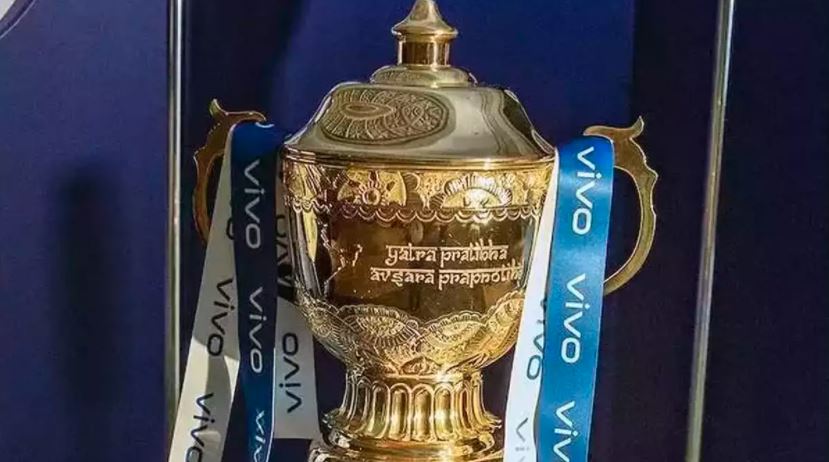After a spurt in COVID positive cases in the bio-bubble, with players and the coaching staff contracting the virus, the Indian Premier League (IPL) has been postponed indefinitely. BCCI on Tuesday released a press note, communicating its decision and remarking that its first priority was the safety of the players.
“The BCCI does not want to compromise on the safety of the players, support staff and the other participants involved in organising the IPL. This decision was taken keeping the safety, health and well-being of all the stakeholders in mind.” read the note.
However, if safety was the prime concern of BCCI – the richest board in the world could have done things differently and in a much more serious manner, to avert the crisis. A detailed report by TOI has highlighted the lapses in the SOPs and the conduct of the IPL and how it was starkly different from the previous season held abroad in UAE.
Not hiring a dedicated bio-bubble safety team
Firstly, unlike the previous edition in the Emirates where BCCI hired the services of UK-based technology and safety company Restrata to build a central bio-secure bubble, the complacent board, in order to cut corners, went ahead and just employed the services of a hospital and a testing laboratory. With no central authority managing the protocols of the bio-bubble, it was only a matter of time before it was breached.
Different bio-bubbles, the breaches and loose definitions
The report further states that hotels were booked randomly, at quite a distance from the playing venues. As the distance increases, the travel time increases which inadvertently increases the risk of the player contracting the virus. One of the franchise members even pointed out that a team that checked out of a hotel and returned there after 12 days, did not keep the hotel reserved for themselves, thus risking a bubble breach.
In certain cases, it was found that the hotel staff wasn’t sent into the mandatory 14-day quarantine before the players and their families began checking in. Moreover, the definition of the isolation period was not clearly defined by the BCCI or the party supposed to enforce the bubble protocols.
In the case of a seven-day window for isolation, checking into the bio-bubble was considered Day One, whereas the general rule for quarantine states that Day One of isolation begins the following day after the check-in.
The broadcasters had booked an entire five-star hotel in suburban Mumbai and created its own bio-bubble but in case the crew had to travel, they had no choice but to fly commercial, putting individuals at risk.
The aeroplane travel and excluding ground staff from the bubble
Moreover, the travel between cities, which more often than not was through aeroplanes meant that players and the support staff had to enter Terminals potentially infected by the virus routinely. Before the start of the tournament, BCCI had insisted that multiple cities were being finalised so as to ensure no team plays a game at their home stadium so as to avoid home advantage.
However, in times as unprecedented as these, it would have been fair to pick a couple of venues and stick to it throughout the tournament, even if it meant some teams having the home advantage. And what is a home advantage when there are no fans to cheer the home team? And if the pitch was any advantage then it certainly is levelled by the amount of dew the Indian grounds receive at night.
The biggest blunder that BCCI did in the management of the bio-secure bubble was not including the ground staff in it. The players need the ground staff for practice and other errand work but the ground staff in cities like Mumbai and Delhi were not put inside the same bubble as other BCCI officials. In Mumbai, Chennai and Delhi, several members of the ground staff kept testing positive with the virus over the last month.
Read More: No matter how many millions die, the IPL must go on. At least BCCI seems to think that
As reported previously by TFI, fearing such an outbreak, the Australian cricketing pair of Adam Zampa and Kane Richardson had announced that they were leaving India and their franchise due to the surging second wave of the coronavirus pandemic. Whereas Indian spinner Ravichandran Ashwin pulled out, citing he needed to be with his family during the fight with the virus.
“I would be taking a break from this years IPL from tomorrow. My family and extended family are putting up a fight against #COVID19 and I want to support them during these tough times. I expect to return to play if things go in the right direction. Thank you @DelhiCapitals” Ashwin had tweeted.
I would be taking a break from this years IPL from tomorrow. My family and extended family are putting up a fight against #COVID19 and I want to support them during these tough times. I expect to return to play if things go in the right direction. Thank you @DelhiCapitals 🙏🙏
— Ashwin 🇮🇳 (@ashwinravi99) April 25, 2021
BCCI messed up big time in the conduct of the tournament this time around. Despite the burgeoning cases across the country, BCCI could have completed the tournament if it had put better measures in place. Pin it on the complacency of the board or the sheer lack of foresight but the postponement is going to burn a huge hole (~ loss of Rs 2000 crores) in the pockets of BCCI and it certainly does not have anyone but itself to blame for the chaos.
